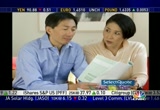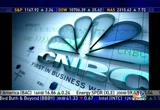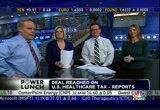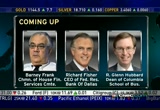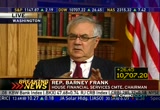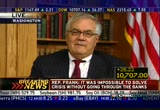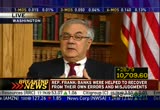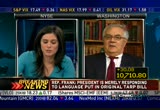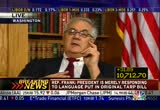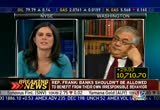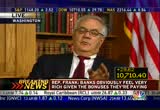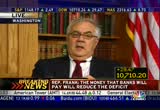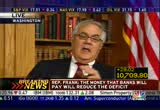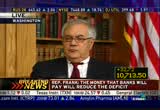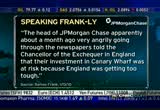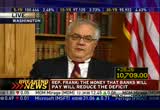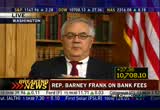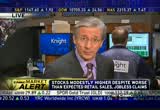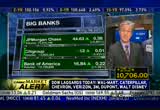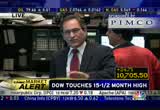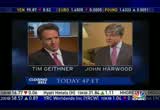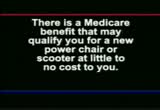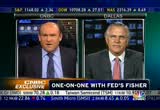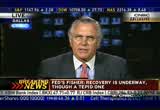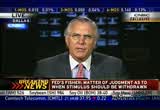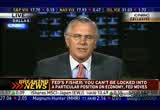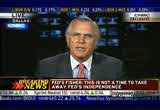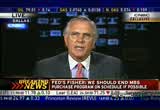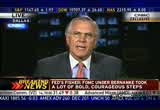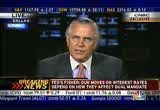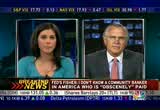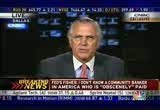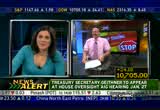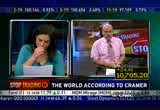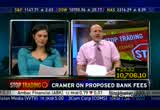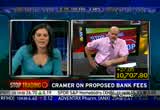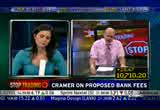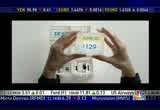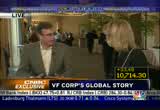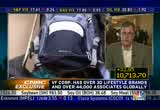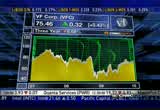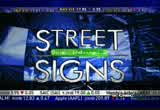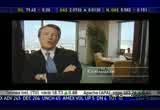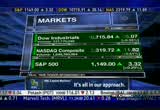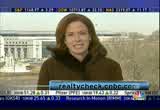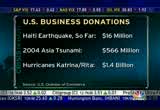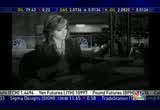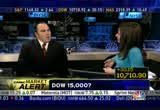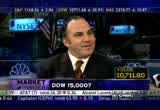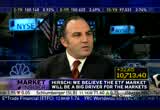tv Street Signs CNBC January 14, 2010 2:00pm-3:00pm EST
2:01 pm
there is various reporting, yet to be confirmed, congressional lead in the white house may have reached a deal on taxing high-end health care plans. what we know is in the works, the threshold would be raised from 2300 to $2400, dental, vision left out, leaving fewer plans affected, unions and local and state government plans a waiver until the year 2017. still to be decided, though, is the level of medicaid expansion, who gets taxed to help pay for health care reform, would it be an increase in medicaid taxes or more taxes on the rich? >> i want to see what controversial erupts of taking unions 12% of the workers and exempting them from a tax and a slap on others. how can that be fair? >> it's part of deal making. they're trying to get it done. you're shocked there's concessions being made? >> not just concessions,
2:02 pm
exemptions for the guy whose helped elect the president. >> leigh gallagher, thanks for being with us from "fortune" magazine. >> "street signs" with erin burnett begins right now. it is 2:00 in washington, where president obama say his wants our money back and he's going to get it. he calls wall street irresponsible, obscene, reckless. congressman barney frank here to weigh in. investors are ignoring washington's wrath. the dow is positive by 26 points. predict, dow 15,000, not even at 11 so far. too good to be true? we'll talk about that about. it's 1:00 in dallas, we'll flare the most outspoken member of the federal reserve. welcome to a very busy "street signs" on this thursday afternoon. i'm erin burnett. and we have some of the big of the people here on all of the
2:03 pm
issues joining us. congressman barney frank, fed president richard fisher and glenn hub board, all with us today. proposed bank tax by the white house and the use of the words obscene, reckless, distasteful by the president to describe certain practices on wall street. is this politics or not? joining us to talk about it, congressman barney frank, chairman of the house finances services committee. i want to begin with a comment or a quote here by the president, when he spoke about the bank tax he proposed this morning. he said, quote, if these companies are in good enough shape to afford massive bonuses they are surely in good enough shape to afford paying back every penny to taxpayers. now, all of the banks that would pay this fee have paid back their t.a.r.p. money plus interest for a return of 20% to
2:04 pm
taxpayers. what does he mean? >> what you said is substantially it's partly true but not entirely true. city corp hasn't paid it back yet, others haven't paid back yet. what he means is that the banking industry, and other aspects of the financial service industry, not just banks, investment houses and others, caused this crisis to a great extent by irresponsibility. the federal government then went to the aid, not of them in motivation, but of the economy. but there was no way to aid the economy to prevent the total collapse without going through them, that's the position that secretary paulson and chairman bernanke took, and they were right, we had to go along. these bankers were helped to recover from their own errors and misjudgments and are now back being profitable and the bonuses are valid point. poor people struggling institutions, institutions aren't making it, they can give
2:05 pm
out bonuses at this level. banks can't have it both ways. they can't trumpet their return to prosperity and ability to payee normalous bonuses but saying poor us, we can't afford this. >> why just the banks? we hear about certain individuals of the hedge industry who made billions trading in various securities. why is it that the banks are getting the particular tax? why not the hedge funds or the pension funds. >> hedge funds, yes, we should do that. i voteded for it, will continue to oat vote for the increase the carried interest. hedge funds are benefitting from paying only capital gains tax rate not using their own money but managing other people's money. that's a separate issue but an important one. the house passed the goil raise the tax on hedge funds to taxes ordinary income rate and not the capital gains rate. when the t.a.r.p. was being passed, people forget these things we had to get a bill
2:06 pm
passed. we said, and what the president's doing here, by the way, response to language congress put into the bill in october 2008 and we said whatever is lost to the federal taxpayer by this t.a.r.p. will have to be recovered from the financial industry. so the president simply moved ahead by a few years, correctly, what we proposed. but i agree, hedge funds should be paying higher taxes, hedge fund managers and we have a separate bill to do that. >> i spoke to some of the bank ceos. a lot of them said we get that, we get how maybe we have paid back our individual t.a.r.p. money but the overall tarn b.a. money. >> maybe? maybe and chmaybe. >> they did pay it back. >> some have. >> ones paying this fee happened to have all paid it back. but my question -- >> no, that's not true. >> i'm looking at the top ten. who hasn't? >> city corp hasn't. >> they have announced they will. >> i can announce a lot of
2:07 pm
things, erin but you better not try to spend it. >> you think citigroup isn't going to pay back its t.a.r.p.? >> they may or may not. they benefitted in a lot of ways. it wasn't a one for one deal here where we hend you money and you pay it back. they benefitted in ways beyond original dollars. these people engage in irresponsible activity overcompensated themselves for doing it and a major factor in a terrible economic crisis. >> they agree with you on some of the points. >> they don't think they should have to pay for it, that's where the agreement -- >> one real issue with that i wanted your point of view on. they're okay paying back aig's part of the t.a.r.p. because aig was linked in to many of them. why the banks paying for gm's $50 billion hole? >> a legitimate issue. it goes beyond having paid back the t.a.r.p. the answer is, and that's one of the things that have to be
2:08 pm
considered. i'm in favor for doing it for this reason, because in addition to t.a.r.p. they were beneficiaries of a number of other things liquidity deposit from the fdic, a number of liquidity programs in the federal reserve. so i believe that from the overall standpoint of the taxpayers, it's legitimate to ask them to pay back. that question about the autos will be raised by if you look at the totality of programs that benefited the banks, plus their culpability you say they agree they were part of the problem, well they agree but they don't want to do anything about it. this is partly a payment from them now that many of them are enormously -- i want to stress, people can pay level of bonuses they are paying must be pretty rich. therefore, it's entirely legitimate for us to say we're going to take back some of the enormous economic cost you imposed on the whole society. >> so what -- the gm issue still to be discussed and --
2:09 pm
>> i'm for covering. >> the issue of where the money goes i want you're sense of this, i'm simplifying it but it makes it a point worth talking about today calling it a modest proposal. i did the math, chairman frank. ten banks will pay $117 billion over ten years and there's just two simple options. one pay $1.2 billion to washington every year each of them, two, they cut a check to every american taxpayer for $8 a year or $83.57. it makes two points. one it really isn't that much money. but, two, washington, so much money going in, so many taxes going up and people have a feeling of deficits going up and we don't see the benefit of the money. >> you're making contradictory arguments. the in the first place how come it's not too much money when it comes in but it's an enormous amount to pay back? they can't have it both ways. >> they're not complaining about the amount. they're complaining about the principle, i think. >> i think they're also -- you mean if we were charging them ten bucks they wouldn't be
2:10 pm
complaining? of course they're complaining about the amount as well. it's going to reduce the deficit, that's what you said, we have this terrible deficit. this money will be used to reduce the deficit. by the way, part -- >> that is a promise? it's not going to some hoy go to some entitlement program or some road somewhere? >> frankly, look, what happens is the federal government has expenditures and takes money in. yeah, some of it will go to pay for the war in afghanistan, some will go to fix bridges that may be collapsing, some will go to the terrible entitlement programs to help pay social security disability. people who become disabled and can't work get social security more than is paid in. so, yeah, some federal revenue does go help with social security disability. the question is more is going to the military than should. this money will go into the general treasury. and the deficit would be larger or we might not be able to fix
2:11 pm
as many bridges, et cetera. one other category of spending that was incurred by the t.a.r.p., that's in mortgage efforts. it's legitimate to make the banks pay because it was their practices, banks and other financial institutions, being irresponsible with mortgages that contributed to the problem. that's part where the money will go. >> so what are we going to start cutting spending? all of this money's supposed to cut the deficit. now it might go to bridges in afghanistan. we're borrowing all of this. >> excuse me, excuse me, you're surprised we have to pay for the war in afghanistan? >> it's supposed to go to deficit reduction. >> no, i'm sorry, i don't mean to be rude. i don't think you understand the way the government works. you don't think say money goes for that, this money goes for that. the deficit is the extent to which expebnditures ekz seed revenue. >> i understand that. >> i would like not to go to afghanistan, i'm opposed to
2:12 pm
that. i think the war in iraq was a terrible mistake. we're in a deficit because bush decided, and congress went along to pay for two wars with five tax cuts. it all goes in and out of the same pot. you can't identify each dollar. your income tax you pay doesn't go into the deficit as opposed to paying for the environmental protection agency. >> i get that. if i ran my household like that, it would be a disaster. >> how often do you go to war? i didn't want to go to war in iraq and i didn't want to cut taxes while going to war in iraq. the difference between a household and federal economy is substantial. that doesn't mean everything we do is right. you haven't gone to war in your household. you haven't been asked to send all of the troops to protect against terrorism. we should be reducing expe expenditures. i'm going to your question, no, you can't identify that this dollar goes to a bridge and that dollar goes to the deficit. you try to do two things, you
2:13 pm
try to hold down expenpex te ex and maximize revenues. i also believe, and i will be talking more about this, that problem of america's expanding military budget all over the world for no good purpose, yeah i want to cut spending and that's where i want to begin. the war in i iraq would have cost us far more than the health care bill without the offset. >> i'd love to continue the conversation on the budget. one other question about the executive compensation issue more broadly. i wanted to use a quote, sir that you had in your statement. we'll put it up here. i'm look too read it here. you said yesterday in your hearing next week, quote, this was about the head of jpmorgan chase, apparently about a month ago very angrily went through
2:14 pm
the newspapers told the chancellor of the exchequer in england that their investment in the ka nar raycanary whatever w tough. by the time they're they very going to have to go to foorz escape their determination. separate from the tax the president announced today -- >> that's a separate thing. i'm not for taxing bonuses. i'm for restrictions on compensation. i don't think a tax on a particular form of compensation works because it -- by the way, you quoted me going to mars. the bush administration planned to spend several hundred dollars sending people to mars. we can do that scientific. i am for he restricting compensation but i don't think a tax on bonuses opposed to salaries or elsewhere makes sense. i favor compensation restricts
2:15 pm
but i don't think taxing one form of compensation as opposed to the other woulden o be effec. >> we did find water on mars. >> yeah, at $300 billion, which we don't have and shouldn't spend. >> what about one person? i want to ask you this, yesterday we all watched the first meeting of the financial crisis inquiry commission and 80% of time it seemed, maybe even more, went to questioning of one person, lloyd blankfein. lloyd blankfein has made xhernts which you said were a joke of doing god's work. he has become the lightning rod for the industry. is lloyd blankfein individually a big part of the problem and why the president needs to use words like reckless, distasteful obscene this bonus season. >> they said a dumb thing. i've said dumb things. it was a bad effort to make a joke when people are feeling
2:16 pm
sensitive. but, no, lloyd blankfein is no more culpable than a number of other people, some who in the regulatory area didn't do what they should have done, others not. goldman sachs has made more money and they've been more successful and that's one of the reasons why they're a target. but, no, you can't say lloyd blankfein as opposed to others with significant responsibilities to financial institutions and say he was a problem. he would be less culpable than mozilo or other individuals or bernie madoff, he was a vicious crook who wrecked people's lives. >> thank you very much. i always appreciate our conversations. >> thank you. >> straight to the trading floor. bob pisani at the big board. >> folks sitting at 15-month highs on the s&p 500, 1149, let's not quibble about a point or two. why doesn't it feel that way?
2:17 pm
trading desks not active. look at s&p 500, volume is not there. the volatility is not there. s that been since november, heaven knows when it will come back. it's not preventing the market from drifting to the upside here. some traders, there's the s&p from the last three months, hoping for direction from intel. intel at 52-week high, outperformed the rest of the s&p 500 last year. and it's coming at expense of the other semiconductor names. intel has been outperforming rest of the market. there's a lot of anticipated good news expected from intel. they'll probably get it, you might see a sell-off given how much it's moved to the upside. let me put up bank stocks despite the issues about how bad this will be for the banks, most analysts' comment tear is benign. bair said it would be manageable if elected though call it silly. fbr calls it not catastrophic. most feel it's manageable.
2:18 pm
there was a precedent for this, fdic raises fees on banks in 1989 by 23 basis points and all costs were passed to the customers. whether they can do that this time is not clear. that's the issue. i see the yields moved to the downside on the 30 and the 10 year. >> reporter: absolutely, bob. as a matter of fact, spot on. i'll pick the ten year maturity. look at the yield chart. look how it behaved at 1:00 eastern when the last of the auctions hit and the 30 year a very good auction. in many ways better than yesterday's tens because the indirect bidders showed up, more foreign central banks versus some mystic single buyer nobody can put a handle on the name somewhat anonymous and also recycling through the financial industry with the cheap money out there. this had the right buyers, aggressive piece, and yields did fall. of course, we're not going to to
2:19 pm
have sfupply for a while. maybe we need to observe how it filters through the testimony. we enjoyed your interview with barney frank but some of us were nervous. if you buy a lotto ticket and win do you have to give half of the winnings to the guy who sold you the ticket? >> good point, rick. >> back to you. >> thank you. next on the show, what is the fed's take on washington's new war cry? steve liesman joins us with an exclusive interview with dallas fed president richard fisher. dow 15,000 by next year? the traders almanac says yes. before you print out the hats, art cashin, hear what needs to happen first in order to make the prediction come true.
2:22 pm
we continue our exclusive newsmakers on this special edition of "street signs." steve liesman will bring in a very special guest. steve? >> thanks, erin. joining us from dallas, federal reserve president and ceo richard fisher. >> steve, good to see you. >> all you have to be is half as animated as barney frank, it will be a terrific interview. let me get right to the date we lad today which retail sales coming worse than expected by economists on the negative side in december, jobs number
2:23 pm
negative in december, minus 85,000. what's the state of the recov y recovery. >> what do you expect for 2010? >> i i think there is a recovery under way. i think it will be tepid. we're still going to have a problem with unemployment for the foreseeable future. we don't see significant price pressures. presently, as you know the federal reserve bank of dallas and i hawkish on inflation. in terms of dynamics to the economy, we are in a corrective phase on the upside, that is, there's a recovery taking place. it's increasingly palpable but not enough. it's simply still a quite tepid recovery and i see a slow rate of economic growth for 2010. >> do you think this is the year when the federal reserve begins to seriously reduce the combination out there, the size of the balance sheets and interest rates? >> well, we took urgent action.
2:24 pm
we expanded our balance sheets under the direction of the board of governors, we did what we thought was appropriate. liquidity initiatives have been reduced. now the balance sheet loaded with mortgage backed securities and some treasuries. it's a question of what the right timing is in advance of the curve, in advance of the turn, depending on the tempo of the turn that we for see, a matter of judgment, when that stimulus begins to be withdrawn. but clearly the economy's in much better shape than the bad shape it was in before. i am not going to give you a specific point forecast but we're headed in right direction. still the recovery is quite tepid. >> the minutes of the last meeting suggested disagreement on the federal reserve, particularly on the issue of whether or not to end the mortgage backed security purchases at end of the quart. which side of the argument are you on? >> first of all we haven't completed it. i think you do what you say.
2:25 pm
we said $1.2 trillion. we need to complete the program before we decide what steps would be. we said we would end the program this spring and i believe that's what we should do. you can't be locked into the positions you have to think through what the dynamics are in the economy. but i think it's premature, steve. we haven't finished the program yet. >> one of the things we know you're following carefully, the political dynamics in washington of which representative frank is a serious player. how much concern do you have that what congress is about to do, regarding stripping the fed of regulatory, supervisory authority, happening in the senate, as well as ability to audit the fed, happening in the house, how much of a challenge do you see that to the fed's independence? >> it's a serious matter. i gave a strong speech on this in waco two nights ago. look at what chairman volcker
2:26 pm
said, the same message. this is not a time to take away the prestige or interpence of the most important financial institution, the central bank of the united states. the business of audits is interesting. we have to be very, very careful there. when people talk about auditing monetary policy deliberations, is it the first step in putting the nose of the political camel underneath the tent of the central bank of the united states and i believe it's a terrible misstep. it could lead us into the situation that we've seen in other countries where monetary policy has been politicized, where central banks don't have independence and we have the worst example of germany, china, argentina. i believe mr. volcker summarized it very well, a, this is not time the time to take away independence of the central bank. secondly, b, it is a time to consider broadening regulator
2:27 pm
power so they're in keeping with what we need to do in order effectively not only set monetary policy but make sure we have financial stability. i would just urge our lawmakers, and by the way i'm not one of them i'm a federal reserve bank president, but to be very careful, things may sound good but we don't want to set america on the path that other countries are gone down that led to their economic weakness or maybe even economic ruin. we need an independent central bank the federal reserve has not aquited itself so well during the bubble phase of this. you, yourself, have said the fed kept interest rates too low for too long. >> right. >> respond to sheila bair who said put a lot of the blame of the bubble at fed's feet, if the fed had changed regulations the loans wouldn't have happened. that is something that's fair to blame the federal reserve for? >> i didn't hear her statement personally. look, we're human. we have made perhaps some errors
2:28 pm
of judgment. but basically we got it right. everybody has turned to the central bank time after time after time. go back to the latin american debt crisis, the silver crisis, whether it's the markets or the congress of the united states, our behavior over the longer term, i think, has been quite appropriate. i think the f1m showed a lot of guts, did the right thing. to make sure in the current federal reserve administration, i think though we have probably made mistakes the overall judgment's been crick and i hope we learned enough confidence that we deserve to continue on as we have for 97 year as an independent financial authority. >> could you foresee a situation where if the unemployment rate ticked up north of 10% that you would raise interest rates? >> it depends on -- that's a
2:29 pm
very difficult question. we had a dual mandate, as you know. the overall purpose is to sustain employment growth, i do not believe that's achievable unless we keep price stability, and that means we cannot have inflation nor deflation take place. so far we've been able to maintain those two pressures on the upside. it's clear that the deterioration in unemployment is not as bad as it was before but we don't see employment taking place to greet that we'd like to. again, this is a matter of judgment, as we go forward. but clearly we're go having to to have price stability as well. >> i want you to ask you to comment quickly. president obama called the bank bonuses obscene. do you think they're on scene? your comment on the tax the administration's planning to put on the banking system. >> it's not the business of the federal reserve to comment on taxes it's eight ma matter for
2:30 pm
lawmakers. the congress in particular decides what they'll take in in tax, what they'll spend, that's their business on. on the mat or of obscenity, i don't know a community banker in america that is obscenely paid. you're focused on the large megainstitutions. our responsibility is to go beyond the megainstitutions to include community and regional banks. we have to be very careful not to beat up on the people that are the backbones of the communities of america and the community banks, regional banks and not focus on large financial institutions to damn an entire class of people that do good work on behalf of small businesses, medium businesses and large businesses. i'm not going to comment on that particular comment. >> one final question from me, sir, in terms of the deficit situation. are you worried at all that by keeping interest rates so low for such an expended period of
2:31 pm
time that we are running the risk of having some sort of a bubble some where? we don't realize it yet but it might become a big bubble and then cause another crisis down the road? or do you think that is not a risk at all at this point? >> well, you're asking a central banker if he is worried. all of us are always worried about everything all the time that's what we to for a living. we try to look for where there might be slippage. but we have to be careful what we say. obviously we're aware of the fact that there can be certain responses to our monetary policy initiatives and behaviobehavior. am i worried about x or y, of course i'm worried. the question is to manage ourselves in an appropriate manner so things don't get out of happened we don't create a bubble in any one sector. we certainly learned a lesson from the last go around with the housing bubble, and there isn't a single person on the open market committee that hasn't learned from that lesson and isn't weary of the consequences
2:32 pm
or behavior. that's the good news that came out of the bad period that we came through. >> not as animated as barney frank, but i'd say as interesting. >> i have a different job. >> we don't pay you to be animated. thanks very much. >> thank you very much. >> thanks, sir. ahead on the show, cramer is here ready to go. his trade, take on washington's war cry against wall street what barney frank ha had to say say. cramer's retail plays, could be one of the biggest winners from the record breaking winter weather. an exclusive with the world's largest apparel company.
2:35 pm
2:36 pm
>> you're right. >> yeah. that's why we all have personal armies. >> yeah. i mean -- >> it was bizarre. i love the guy. i love the guy. >> a very smart guy. very respected by the player but that did not make sense to knee. >> you know, with all due respect, and then i don't say anything, because that says it all. >> okay. let's move along, jim. >> yeah. >> you might want to get your spaceflight suit ready to go to mars because they got water there now so you can live there. >> i thought your questions about goldman, bloomberg put out this like analysis of how many minutes guys were addressed and bank of america the biggest screwup of the ones there, that guy, because he wasn't -- he was only a very important person not the head person got the least amount of time which i thought was funny. where are the home builders? home builders lost us fortunes and they were a major part of the problem and got real relief from the government.
2:37 pm
fine. >> so i'm still just thinking about the whole situation, why can they just open -- send everyone a check? >> i wish goldman had a loss, this wouldn't have occurred. >> i thought one thing was interesting, by the way, which is that he acknowledged and said the gm issue was a real one. >> wasn't that good? gmac? look the hot seat belonged to two guy whose got it right, well dimon, there's no hot seat but for lloyd. look, there's just no doubt about it, this is like they had too big a bonus okay. what were they supposed to do with the money? you know what? there was a show "the shield" they take all of the money and burn it in the furnace. if goldman taken the money and burned it in the furnace, we wouldn't have had the tax. that's how stoop this thing is developing. >> and the adjectives are coming out again. >> it's killing everybody. everyone on wall street knows how bogus this is. i want to hear what geithner says. geithner's a pretty good guy.
2:38 pm
>> coming on with john harwood this afternoon. tune? >> we all got to bash him. we have to say they're bad guys. the real bad guys were bair and lehman and new century financial and gmac. >> here's the other thing that he said that i thought was interestinging look at biggest banks the ones paying the fine or the fee or whatever you call it, right, they're the ones who paid back t.a.r.p. and citigroup hasn't paid it back. technically it's possible they don't but they announced it and they started to. that felt like grasping at straws. >> if you want to penalize the guys take the excise tax on the t.a.r.p. it's feipainful to listen to th guy whose got it right take the lashing. right now boat drinks off the coast of venezuela. >> we still don't know how much lloyd blankfein is making this year. >> he's not the enemy. >> but that's -- but he is right
2:39 pm
now the face. and i think there's no disputing that, right? a year ago everyone would have asked those questions and n. that hearing to jamie dimon. but now the only person they want to talk to is lloyd blank fine. >> because the firm got it right, he's the face. >> i think he's the face because, yes, the firm got it right but also did get it right in part due to the large taxpayers and other things. >> which is why i want ant an excise tank. it doesn't make sense to me. >> jim, i know we had a lot of stocks but this issue is taking over this week. >> look i want to tax the head out of lloyd's compensation. i think to do this across the board thing because of goldman, which is not a community bank, that did not use fdic -- yes, they did become an fdic bank, they did benefit from t.a.r.p. tax the individuals. lit be like britain.
2:40 pm
2:43 pm
you heard jim earlier, vf corp, one of the big global stories to watch, jane wells joins us live with man who runs this megabusiness. jane, get us started. >> reporter: with eric weissman, thanks for joining us. >> happy to be here. >> how was the holiday? >> holiday was about as we expected. we saw a lot of improvement at
2:44 pm
retail. we expected to see that off a weak 2008 result. >> i know that you expected to cut our inventory 13% by the end of the year. do you need to cut it more? you did that, right? >> got that done. >> you need to do it more? >> we will work next year on inventory reduction target, it will not be as aggressive as thou 9 experience. >> erin? >> so, what about one of your brands that's grown a lot, i know jim's talked a lot about this one, jim cramer, i'm sure you've heard of him, so the -- >> go ahead. >> the weather this winter and that's propelled the north phase. what can you say in terms of how mid to high priced apparel are doing in the economy? >> well, i will tell you the north face has done particularly well this year and for several years before that. our team there consistently executing that brand well on a global basis. that's not an inexpensive brand but sells well. if you have a terrific brand and
2:45 pm
compelling product that is a value for what you're getting you can sell things at a medium to high price. >> around the world right now, what market is performing the best relative to your expectations? >> our strongest growth rate right now is in china. it's a relatively small market for us but an area focused on for a while and launched our first china subsidiary in 1995. we have experience there and platforms, a lot of brands launched in the market right now and it's getting traction for us. >> jane? >> i'm going to jump in here. i have -- this is what i want to ask you. m&a is heating up in retail. you're a big acquirer. what are you going to buy this year. >> i cannot answer that p precise precisely. we have had a lot of skill and
2:46 pm
talent we think we have more room in the portfolio in outdoors. >> talking to anyone? >> absolutely. a dedicated m&a team internally and they're working real hard. >> what's the next brand you want to introduce in china? >> we talked about doing one brand a year. our focus has changed we have top four brands launched in china. the top four there, we're going to invest significantly in those four brands this year, not that we're going to ignore other brands but the big four are there. we're going to invest in 2010. >> eric weissman. >> we appreciate it. thanks, eric. next, president obama coordinating a monumental relief effort for haiti. we'll have the very latest. dow 15,000 by next year. the story by hind a very bold prediction.
2:47 pm
right now 1.2 million people are on sprint mobile broadband. 31 are streaming a sales conference from the road. 154 are tracking shipments on a train. 33 are iming on a ferry. and 1300 are secretly checking email on vacation. that's happening now. america's most dependable 3g network. bringing you the first and only wireless 4g network. right now get a free 3g/4g device for your laptop. sprint. the now network. deaf, hard-of-hearing and people with speech disabilities access www.sprintrelay.com. who try to quit cold turkey will be unsuccessful. if you haven't been able to quit smoking, you haven't failed, maybe your method of quitting has. but you can do it. you may just need the right tools. clinical guidelines recommend treatment and support to improve your chances of quitting smoking. why not get all the help you can? make a plan, get support, and talk to your doctor about prescription treatment options that can help you quit smoking. and to find out more, go to rethinkyourquit.com
2:49 pm
2:50 pm
welcome back to "street signs" with your daily realty check i'm diana olick in washington. foreclosure tallies are in for 2009. 2.8 million properties receiving some form of foreclosure filing, that's up 21% from 2008, according to realty track. december saw a 14% monthly increase in foreclosure filings despite more aer toa over the holidays. housing crisis in manhattan, good news for renters about the average price fell 4.3% from a year ago. number of rental units surged 47% a year ago when the market stalled but still at historically low volumes. and the interest rate on the 30-year fix dropped to 5.06% from 5.09%, that according to fri freddie mac basically flat.
2:51 pm
up next tomorrow morning at 11:50. go to realtycheck.cnbc.com. the latest on the crisis in haiti. scott cohn is with us now with the headlines. scott? >> it is not just an untold human tragedy but now we can say it is a complete logistical nightmare, according to officials there. aid is pouring in but getting it to where it needs to be is the hard part. chaos 48 hours into the disaster. people have lost their homes streets are clogged. no phones, for the most part, no functioning hospitals, can't get supplies into port-au-prince because the port is damaged. royal caribbean is sending kruse ships with supplies to labbed by did. the airlift the slender lifeline stopped because the airport at port-au-prince is filled to capacity and they're out of jet fuel. aid flights from the u.s. aren't even allowed to take off.
2:52 pm
nonetheless, companies are opening wallets big time. 16 million in aid according to the u.s. chamber of chamber of commerce. number of american firms donated about $566 million to relief efforts after the tsunami in 2004. the latest in the quake and what you can do at cnbc.com. erin. >> thanks very much, scott cohn. and next, dow 15,000 by next year. ♪
2:53 pm
[ male announcer ] it guides. it shows. it slides. it tows. it sees. it calls. and it fits. we gave it more ideas per square inch... because more is what we do. introducing the terrain, the all-new smaller suv from gmc. st: could switching to geico 15% or more on car intinsurance?e yourrain, host: did the waltons take way too long to say goodnight? mom: g'night john boy. g'night mary ellen. mary ellen: g'night mama. g'night erin. elizabeth: g'night john boy. jim bob: g'night grandpa. elizabeth: g'night ben. jim bob:'night. elizabeth: g'night jim bob. jim bob: g'night everybody, grandpa: g'night everybody. jim bob: g'night daddy. vo: geico. 15 minutes could save you 15% or more.
2:55 pm
for the dow not even at 11,000. 10709.34 at this second. a long way to go before we see 15,000 but one man says it could happen by 2011. jeff herst stock editor's almanac editor in chief. >> thanks for having me again. >> okay, so, the dow jones industrial average could rally 50% from the midterm low from a pre-election year high? >> yes. >> all right there are political ramifications to this, which may be outside of bounds of
2:56 pm
conversation. touch on them, but first why 15,000 in 2011? >> well, it's based upon the average move from the midterm low to the -- high about 50%. some years have been low. lowest is 14.5 and some years are higher, as high as 80%. so basically it's just an extrapolation from if the low for 2010 is 10,000 and then a move would be 50,000 and in the almanac an equivalent move to 10,000 or 15,000 but i think that the 15,000 number jumps out. >> this is based on the charts looking at what historically has happened? you're not trying to make a prediction, for example, of earnings or something like that? >> no, no it's based on historical market action in the four-year cycle. >> all right just to make sure so people understand. >> right. >> and data goes all the way back do 1914. >> correct. >> we do include the other commonly referred to historical period of the '30s when we're faulking about that. >> so several wars. >> yes. >> great depression. >> and some stagflation in the
2:57 pm
'70s, all kinds of years are included in there, yeah. >> okay, so what -- what role does fundamental analysis play into, this if anything? for example if the fed changes interest rate policy, do you care. >> yeah, that could affect things in the interim. i think a change in interest rate policy, but probably put towards the lower end of the spectrum but this is based upon what happens in the four-year cycle. we have this happening right here, why this administration is trying to do something to the economy and try to do something more come pre-election year so the democrat at least try to maintain control of the white house. >> well, hey if you get anywhere close to it this year you are going to eye guess common wisdom would sayul help the incumbents, although who knows, right. >> it's not also the market but economy and the cpi has to remain in check. the higher that goes the less you know you'll see in the market and in the economy. but you know there's a lot of growth here. but this is similar to several other midterm years, where you have coming into the year, a
2:58 pm
more than 50% gain from the low. >> right. >> we've seen corrections in those years ranging from 9.7% to about 25%. '94 was barely at a 10% correction. a little bit of a rally, pullback, more rally. that's what i'm looking for in this year. >> one quick thing here, mark haynes would love this. more etfs are created. more money coming into the market. >> i think that's going to be a driver. we've seen etfs come out of blocks and if it's on this pace up 50% in etfs this year. >> it's incredible. eight founded in 2010 and 400 that the rate by the end of the year. it's pretty incredible. yields, a whole other set of conversations, which we will have, and thank you very much for being here. >> my pleasure as well. and brief break but your "trend of the day" is first. national car rental knows i'm picky.
2:59 pm
so, at national, i go right past the counter... and you get to choose any car in the aisle. choose any car? you cannot be serious! okay. seriously, you choose. go national. go like a pro. as having to decide to go for it? at the hartford, we help businesses of all kinds... feel confident doing what they do best. by protecting your business, your property, your people. you've counted on us for 200 years. let's embrace tomorrow. and with the hartford behind you, achieve what's ahead of you. ♪
56 Views
IN COLLECTIONS
CNBC Television Archive
Television Archive  Television Archive News Search Service
Television Archive News Search Service 
Uploaded by TV Archive on

 Live Music Archive
Live Music Archive Librivox Free Audio
Librivox Free Audio Metropolitan Museum
Metropolitan Museum Cleveland Museum of Art
Cleveland Museum of Art Internet Arcade
Internet Arcade Console Living Room
Console Living Room Books to Borrow
Books to Borrow Open Library
Open Library TV News
TV News Understanding 9/11
Understanding 9/11